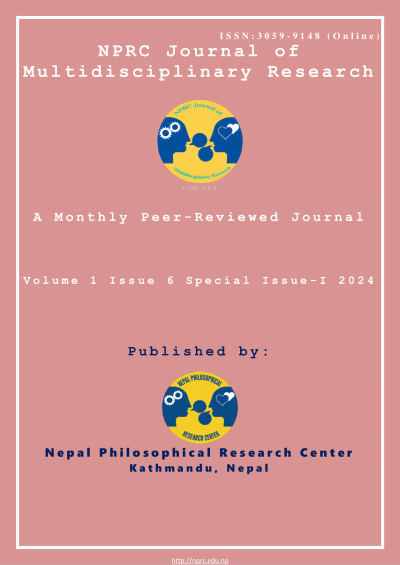Association between Sleep Quality, Internet Addiction and its Associated Factors among Bangladeshi University Students: A Cross-sectional Study
DOI:
https://doi.org/10.3126/nprcjmr.v1i6.71742Keywords:
Bangladesh, Internet Addiction, Sleep Quality, University StudentsAbstract
Background: This study explores the association between sleep quality and internet addiction among Bangladeshi university students. With increasing internet usage, particularly during the COVID-19 pandemic, concerns have arisen regarding its impact on sleep quality. This research aims to investigate this relationship and its demographic variations to provide targeted recommendations for improving student well-being.
Method: A cross-sectional study involving 587 university students (299 males, 288 females) from various regions in Bangladesh was conducted. Participants aged 18-26 years were selected through purposive and convenience sampling. Data were collected via the Personal Information Form (PIF), the Bengali version of the Pittsburgh sleep quality index (PSQI), and the Bengali version of the internet addiction test (IAT). Descriptive statistics, Pearson correlation, independent sample t-tests, and one-way ANOVA were used for data analysis with IBM-SPSS software version 29.0.
Results: The study revealed that 92.33% of the participants reported poor sleep quality, with moderate internet addiction being most common (48.22%). A significant positive correlation (r = 0.608, p < 0.01) was observed between internet addiction and poor sleep quality. Gender differences were significant for sleep quality but not for internet addiction. Socioeconomic status and residential division influenced both internet addiction and sleep quality. This research highlights a significant association between internet addiction and poor sleep quality among Bangladeshi university students.
Conclusion: The findings underscore the need for targeted interventions addressing internet use and sleep hygiene. Further, longitudinal studies are recommended to explore causal relationships and develop effective strategies for improving student health and academic performance.
Downloads
Downloads
Published
How to Cite
Issue
Section
License
Copyright (c) 2024 The Author(s)

This work is licensed under a Creative Commons Attribution-NonCommercial 4.0 International License.
This license enables reusers to distribute, remix, adapt, and build upon the material in any medium or format for noncommercial purposes only, and only so long as attribution is given to the creator.





